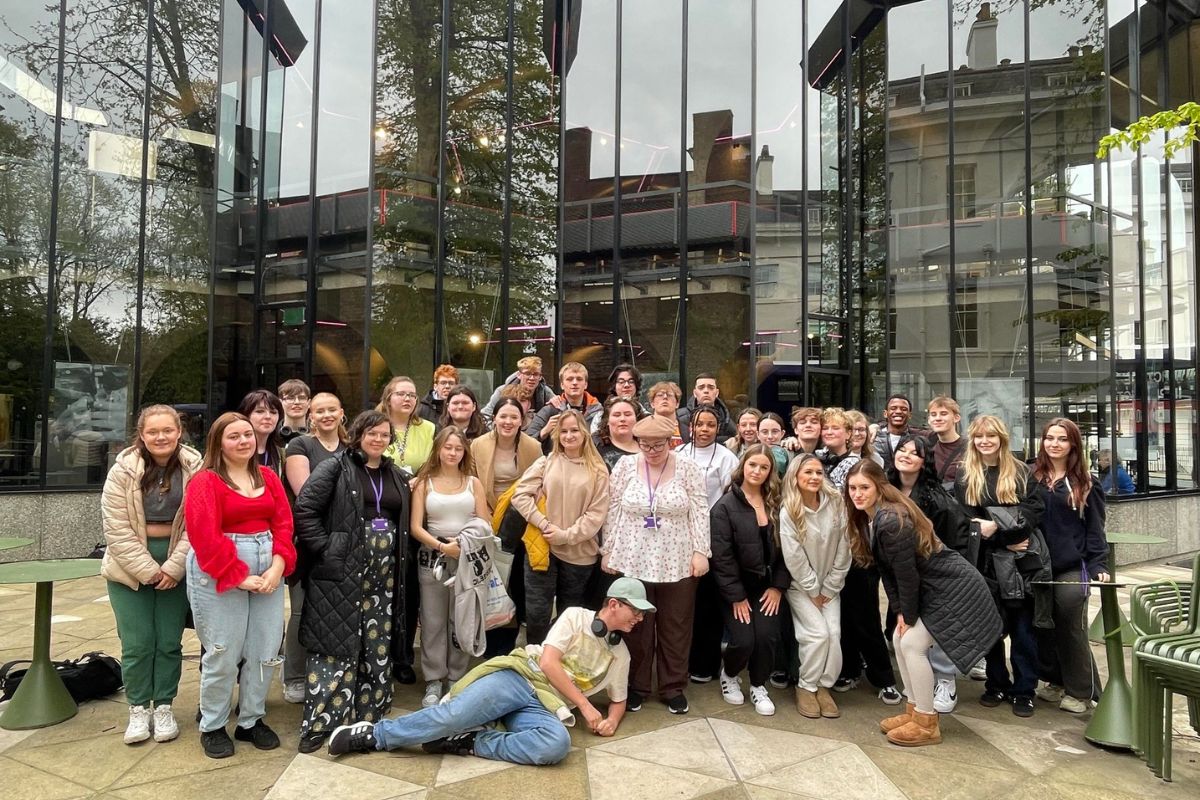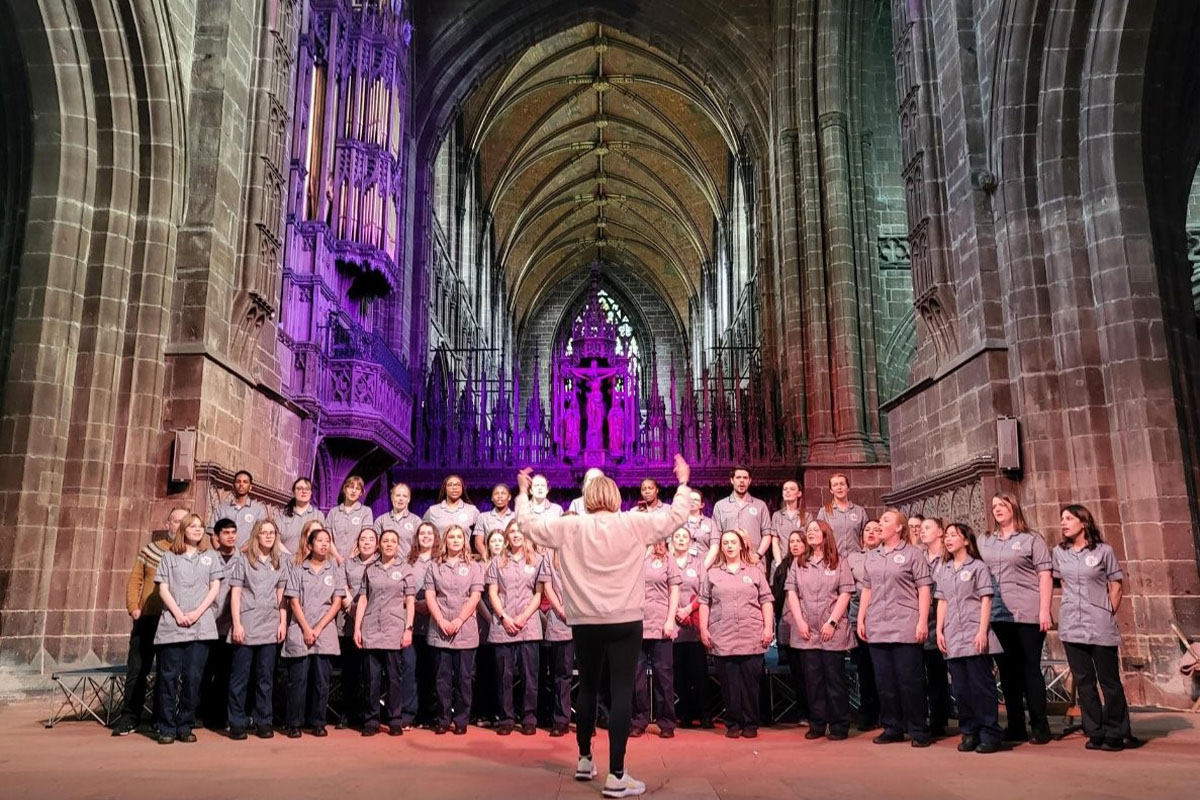Levy Sharing is Caring

Claire Costello, Co-op’s Chief of People and Inclusion Officer, discusses how the public and third sector can better utilise apprenticeship levy share services
Budget pressures across local government, charities and healthcare organisations have led to understandable capacity constraints across the UK. This clearly has knock on effects, one of which being limited time and resources being available to secure targeted, beneficial apprenticeship training.
In the context of these challenging conditions, it’s completely understandable to see why apprenticeships might fall down the list of priorities. However, apprenticeship levy share services can provide an easily accessible, valuable platform and resource that can help to counter funding barriers.
Given this resource gap is being felt nationally, why is it that levy share programmes are not more widely known about or utilised? Now that the government has increased the percentage of levy which can be shared from 25% to 50%, there’s no better time for organisations to review their capacity to share their levy. With only 2.7% of levy paying employers currently transferring some of their levy, further support should be given to businesses so they could better understand their levy account and their capacity to transfer funding.
Co-op has operated a Co-op Levy Share service since 2021 and received many questions since its inception. Here are just some that might make organisations consider how levy shares could work for them.
How do Apprenticeship Levy Share schemes work?
All UK organisations with a payroll exceeding £3m, from both the public and private sector, are required to make apprenticeship levy contributions at a rate of 0.5% of their annual pay bill. The Office for Budget Responsibility (OBR) suggested £3.7bn would be raised in apprenticeship levy funding this financial year, with this money ringfenced for spending on apprenticeship training.
If this levy funding is not used within 24 months, it is returned to HM Treasury. Many critics of the legislation claim this is an inflexibility that sees the levy treated as a form of tax, rather than a way to facilitate an increase in apprenticeship training, on time poor organisations. To put this into context, in 2022/23, it was reported that the total unspent apprenticeship levy amounted to £96m, enough to fund an estimated 9,000 apprenticeship positions.
In April 2019, the government responded to this criticism by enabling levy-paying employers the opportunity to transfer up to 25% of their annual funds to other organisations. To further support more apprenticeship levy funding being used on training, organisations like the Co-op established apprenticeship levy share services to pool and allocate resources where they were needed most. From 1 April 2024, this has increased to 50%, with an additional £60m of government funding provided to support the growth of apprenticeships across the UK.
Who can access apprenticeship levy share services?
There are a number of levy sharing services available with differing objectives and requirements. Our Co-op Levy Share service was established to help tackle some of the underrepresentation which exists in the apprenticeship sector, with a clear role to support social mobility. As a result, any employer receiving funding for apprentice training from the Co-op’s Levy Share service must commit to paying the National Living Wage, which is £5.04 more an hour than the lowest wage a UK apprentice could earn in their first year of training – the minimum wage for an apprentice (aged under 19 or in their first year of training) is £6.40 and the National Living Wage across the UK is £11.44.
Applicant organisations share information about their requirements so that they can be placed in a matching service. This then links a funder to a receiving organisation, enabling the allocation of funds and resulting creation of apprenticeship training. This is all carried out through the government’s Apprenticeship Service (AS), enabling secure transfer of funding.
Donating organisations can choose sectors and types of training they would like to support as part of this matching service, with a dialogue then created between donor and recipient when funding is allocated. This function creates networks for organisations, often from different backgrounds, to collaborate and share best practices within relative fields.
How can apprenticeships benefit employers and employees?
For an organisation to thrive, current and potential employees need to see the workplace as a space to grow their careers. Investing in apprenticeship training has always been a way to foster this culture and create a future ready workforce, but apprenticeship levy sharing schemes help to level the playing field when it comes to attracting and nurturing the best talent, especially for organisations struggling with capacity.
For public and third-sector organisations, there is a massive opportunity to capitalise on a demand from younger generations for jobs that provide genuine social value. Recent Co-op research found that over half (56%) of young people want to work or volunteer in something that makes a positive difference to society. Gaps in funding can partially be addressed by levy share services, helping these vital organisations create more attractive paid opportunities for emerging talent in positions that can make a positive societal change.
Employers should also consider how they can give their existing staff the option to upskill or pivot within their organisation through apprenticeship training. There are over 140 different apprenticeship standards supported across the Co-op’s Levy Share service, including training for environmental consultancy and IT roles. Many organisations with limited resources and capacity in these areas could therefore utilise levy share programmes and apprenticeship training to address potential organisational gaps in expertise.
Filling the opportunity gap
Co-op has long been an advocate for the role of apprenticeships in strengthening our economy and providing career opportunities and progression for people of all ages. The Co-op Levy Share has matched over 2,000 apprenticeships since 2021 – over a third (37%) has been used by publicly funded organisations. With reported funding gaps of up to £4bn across the UK, this trend is expected to continue beyond 2024 across the public and third sector.
It’s important for us all that future jobs in these sectors are adequately supported, so that the most talented individuals are attracted to careers that can have the biggest impact on us as a society. Levy share services like the Co-op’s are clearly not a fix-all solution to long-term, systemic issues around funding in the public and third sector, but they can help to alleviate some pressures.
By Claire Costello, Chief of People and Inclusion Officer, Co-op










Responses